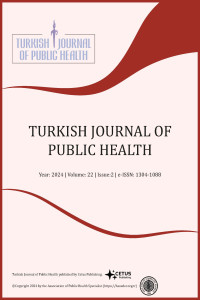Abstract
Vaccine hesitancy, which peaked globally during the COVID-19 pandemic and continues to garner significant attention amid ongoing global efforts to combat the morbidity and mortality associated with infectious diseases, poses a major challenge to disease prevention and control. Fueled largely by misinformation and distrust in government and scientific institutions, vaccine hesitancy jeopardizes individual and community health, as well as decades of progress in medicine and public health. Effectively addressing vaccine hesitancy entails balancing public health initiatives with political realities on the ground. To achieve this, effective communication of scientific evidence regarding vaccine safety and efficacy is paramount in dispelling myths and countering the myriad of misinformation. Health authorities and policymakers must engage with the public through transparent and accessible channels to build trust and confidence in vaccination. Recognizing the diversity of communities and their unique concerns is crucial in tailoring vaccination strategies. Community engagement initiatives that involve traditional or local leaders, religious organizations, and grassroots movements can help improve trust levels and increase vaccine acceptance. In this age of social media dominance, educational campaigns aimed at promoting health literacy and critical thinking skills can empower individuals to discern credible sources from misinformation. Socioeconomic factors often exacerbate vaccine hesitancy, disproportionately affecting marginalized communities; therefore, addressing socioeconomic disparities in access to healthcare, education, and resources is essential in ensuring equitable vaccine distribution and uptake. Evidence-based policy reforms that prioritize public health while respecting individual rights can also foster an environment conducive to vaccine acceptance.
References
- Eddy JJ, Smith HA, Abrams JE. Historical lessons on vaccine hesitancy: smallpox, polio, and measles, and implications for COVID-19. Perspect Biol Med. 2023;661:145-159. doi: https://10.1353/pbm.2023.0008.
- Goldenberg M. Vaccine Hesitancy and Institutional Credibility Pre-COVID-19 [Doctoral dissertation]. 2022. Available at: https://macsphere.mcmaster.ca/handle/11375/28261. Acces on: April 25, 2024.
- Ali VE, Asika MO, Elebesunu EE, Agbo C, Antwi MH. Cognizance and mitigation of falsified immunization documentation: Analyzing the consequences for public health in Nigeria, with a focus on counterfeited COVID-19 vaccination cards: A case report. Health Sci Rep. 2024;72:e1885. doi: https://doi.org/10.1002/hsr2.1885.
- Carey G, Crammond B. Action on the social determinants of health: views from inside the policy process. Soc Sci Med. 2015;128:134-141. doi: https://doi.org/10.1016/j.socscimed.2015.01.024.
- Nuwarda RF, Ramzan I, Weekes L, Kayser V. Vaccine hesitancy: contemporary issues and historical background. Vaccines. 2022;1010:1595. doi: https://doi.org/10.3390/vaccines10101595.
- Holt D, Bouder F, Elemuwa C, Gaedicke G, Khamesipour A, Kisler B, et al. The importance of the patient voice in vaccina-tion and vaccine safety—are we listening? Clin Microbiol Infect. 2016;22:S146-S153. doi: https://doi.org/10.1016/j.cmi.2016.09.027.
- Ali A, Qazi IA. Countering misinformation on social media through educational interventions: Evidence from a randomized experiment in Pakistan. J Dev Econ. 2023;163:103108. doi: https://doi.org/10.1016/j.jdeveco.2023.103108.
- Faden R, Bernstein J, Shebaya S. Public health ethics. 2010. Available at: https://plato.stanford.edu/Entries/publichealth-ethics. Acces on: April 25, 2024.
Abstract
References
- Eddy JJ, Smith HA, Abrams JE. Historical lessons on vaccine hesitancy: smallpox, polio, and measles, and implications for COVID-19. Perspect Biol Med. 2023;661:145-159. doi: https://10.1353/pbm.2023.0008.
- Goldenberg M. Vaccine Hesitancy and Institutional Credibility Pre-COVID-19 [Doctoral dissertation]. 2022. Available at: https://macsphere.mcmaster.ca/handle/11375/28261. Acces on: April 25, 2024.
- Ali VE, Asika MO, Elebesunu EE, Agbo C, Antwi MH. Cognizance and mitigation of falsified immunization documentation: Analyzing the consequences for public health in Nigeria, with a focus on counterfeited COVID-19 vaccination cards: A case report. Health Sci Rep. 2024;72:e1885. doi: https://doi.org/10.1002/hsr2.1885.
- Carey G, Crammond B. Action on the social determinants of health: views from inside the policy process. Soc Sci Med. 2015;128:134-141. doi: https://doi.org/10.1016/j.socscimed.2015.01.024.
- Nuwarda RF, Ramzan I, Weekes L, Kayser V. Vaccine hesitancy: contemporary issues and historical background. Vaccines. 2022;1010:1595. doi: https://doi.org/10.3390/vaccines10101595.
- Holt D, Bouder F, Elemuwa C, Gaedicke G, Khamesipour A, Kisler B, et al. The importance of the patient voice in vaccina-tion and vaccine safety—are we listening? Clin Microbiol Infect. 2016;22:S146-S153. doi: https://doi.org/10.1016/j.cmi.2016.09.027.
- Ali A, Qazi IA. Countering misinformation on social media through educational interventions: Evidence from a randomized experiment in Pakistan. J Dev Econ. 2023;163:103108. doi: https://doi.org/10.1016/j.jdeveco.2023.103108.
- Faden R, Bernstein J, Shebaya S. Public health ethics. 2010. Available at: https://plato.stanford.edu/Entries/publichealth-ethics. Acces on: April 25, 2024.
Details
| Primary Language | English |
|---|---|
| Subjects | Health Care Administration |
| Journal Section | Letter to the Editor |
| Authors | |
| Early Pub Date | August 16, 2024 |
| Publication Date | August 16, 2024 |
| Submission Date | April 26, 2024 |
| Acceptance Date | June 11, 2024 |
| Published in Issue | Year 2024 Volume: 22 Issue: 2 |
Cite
TURKISH JOURNAL OF PUBLIC HEALTH - TURK J PUBLIC HEALTH. online-ISSN: 1304-1096
Copyright holder Turkish Journal of Public Health. This work is licensed under a Creative Commons Attribution-NonCommercial 4.0 International License. 


